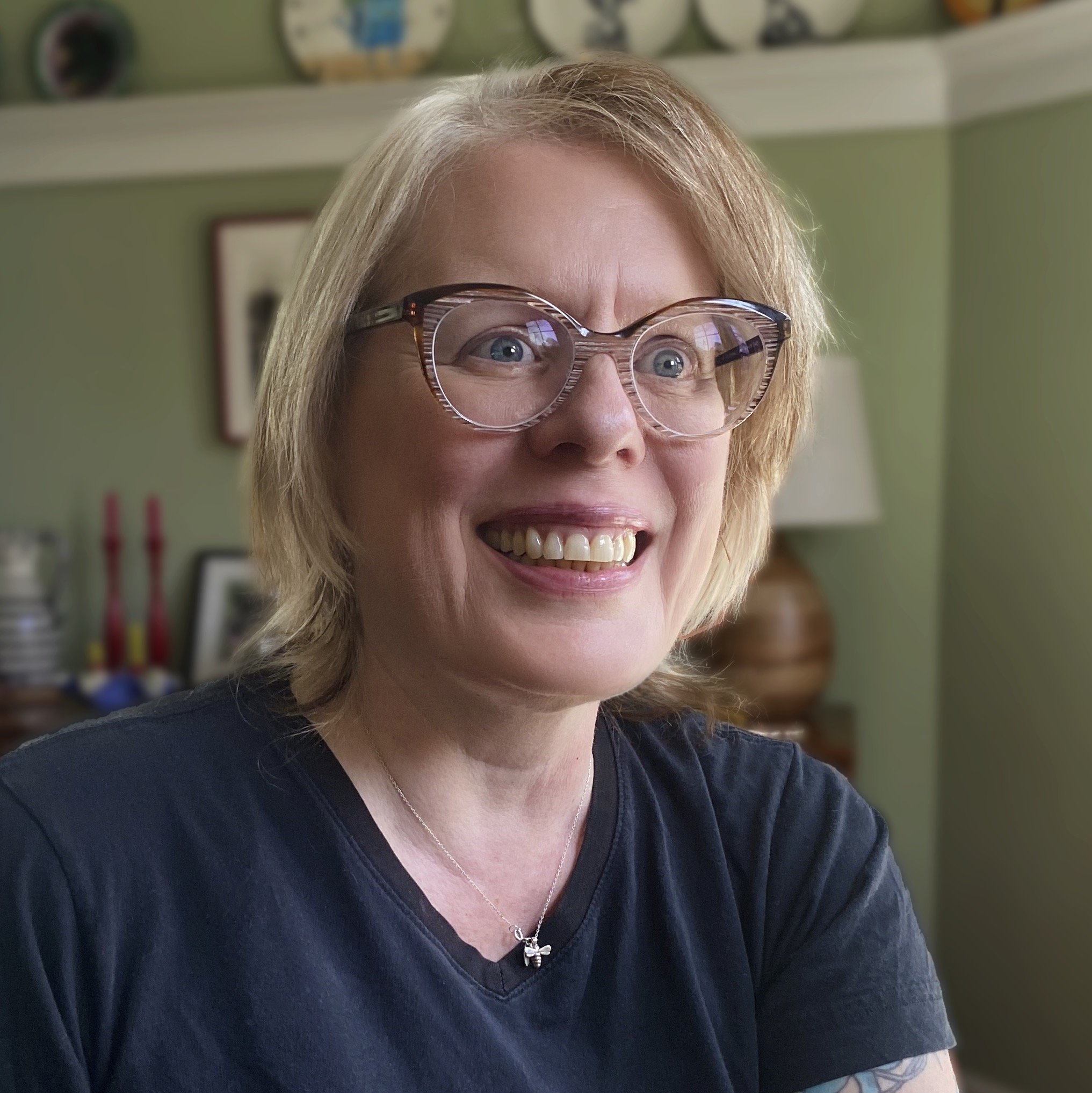Jacqueline Ellis is a writer and professor of women's and gender studies.
“Mr. G” is Amy Tubay’s secret, favorite patient in her non-fiction piece “The Favorite” (Intima, Spring 2021). He arrives at the doctor’s office with a long list of questions. He gets his questions answered. He questions his doctor’s answers. He is persistent, demanding, unpredictable, tenacious.
What if I were more like Mr. G?
In “My Eyes are a Map of Veins” (Intima, Spring 2022), I am a “good patient”: quiet, compliant. I silently accept my doctors’ comments, their opinions, their assertions about my condition. When a doctor is dismissive or insulting or unsympathetic, I say nothing. It is easier to leave, to search for another practitioner.
I make a list of questions whenever I am about to see a new specialist. I rehearse them before appointments, determined to show the doctor that I understand my condition, that I have done my research, that I am able to self-advocate. The list stays in my bag. The questions go unasked.
I was raised to ask questions. I am a critical thinker, a college professor. Why, then, do I submit to the doctor’s authority? Mr. G helps me formulate answers:
I want a clear diagnosis, an obvious course of treatment, a positive outcome.
I want a simple story, an easily resolved conflict, a happy ending.
I want the doctor to control the narrative.
***
If I were more like Mr. G, I would look the doctor in the eye, ask questions, expect answers. Maybe, like him, I could become a favorite patient?
And yet, when Mr. G sends Tubay a letter, she reads it “over and over” and decides “it would be inappropriate to reply.” Two years later she learns he has died. Perhaps being a “favorite” patient is not that different from being a “good” patient. Maybe it’s the same silence. The same one-way conversation.
“I had known him inside and out… but I hadn’t really known him,” Tubay writes. In the end, she regrets adhering to the “stupid rule” that doctors should not have favorites and recognizes that knowing the fullness of a patient’s story is essential to a caring medical practice. Mr. G’s perspective helps me to reframe my experiences. I had thought my doctors would find my acquiescence helpful. I realize now that it is my responsibility as a patient to tell my doctors my story—it is certainly my doctors’ responsibility to listen—so that, together, we can construct a narrative that is truly healing.
Jacqueline Ellis is a writer and professor of women's and gender studies. Her work has appeared in Mutha Magazine, Hinterland Magazine and Bending Genres, among others.

